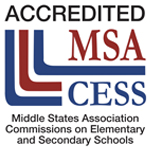How Was School? As a parent myself, I know how it feels to always ask that question. It can be frustrating to get some nuggets of information about what your children do all day in school. I used to make the mistake of walking head first into a dead end conversation every day by asking my children “How was school today?” More often than not I received answers that ranged from “boring” to the ever informative “good”.
This breakdown in communication troubled me for two reasons. First, I deeply care about my children’s education as all parents do, and I rely on them for confirmation that they are learning, engaging, and developing each day. Secondly, I want to hear about their day; I’m curious! After spending hours apart, I want to hear each and every detail.

But answers such as “fine” leave us parents with questions not only about the education of our children but how they are developing socially as well. Although each child communicates differently, there are ways you can adjust your after-school conversations to pull more information about your child’s day (or, at least, get a full sentence).
How Was School? | Listen First
Often, my son would have stories to tell as soon as I picked him up at the end of the day. Although the initial after-school stories about finding a spider during recess may not seem like the information you were looking for, it presents a great opportunity to discover a much larger picture about your child’s day. Let them initiate the conversation, and then follow up to learn more. Who found the spider? What color was it? Did any of your teachers see the spider? What friends were you playing with when you found it? Were you scared of the spider or did you think it was cool? Did you give it a name? By doing this, you can learn about additional teachers involved in your child’s learning, what friends they are spending time with at recess, etc.
How Was School? | Speak Their Language
Listening first also gives you an opportunity to pick up details about your child’s school and the structure of their day. This is important because it gives you a chance to reference specifics about the world they live in. Instead of a broad question about their day as a whole, ask about particular classes or places and how they spent their time there. Asking what instrument they’re learning in general music or who the school basketball team is playing next week can start a conversation that’s on your child’s terms. If you’re unsure where to start, just do a little homework. Getting familiar with the structure of your child’s weekly academic schedule, school events, and the physical layout of their school campus can be a great place to get these conversations started.
How Was School? | Ask Open-Ended Questions
The primary issue with asking “How was your day?” is that the question is easily and accurately answered with one word. By rephrasing the question to be more open-ended and focused on something more specific, children are stimulated to think more deeply. Here are some examples of better questions to ask:
- How did you help another classmate today?
- Where did you spend the most time during recess?
- Who do you think is the funniest teacher?
- What was your favorite part of the day?
- If you were a teacher, what would you want to teach?
Both your child’s education and their social life is important. By putting yourself in their environment, challenging them to provide details and discussing their day on their terms, you are giving your child a safe space to share any of their daily troubles and concerns while also discovering what they’ve learned and explored that day. Tomorrow, try asking one of the questions listed above. You can inspire thoughtful and meaningful conversations between you and your child; you just have to know how to ask.





